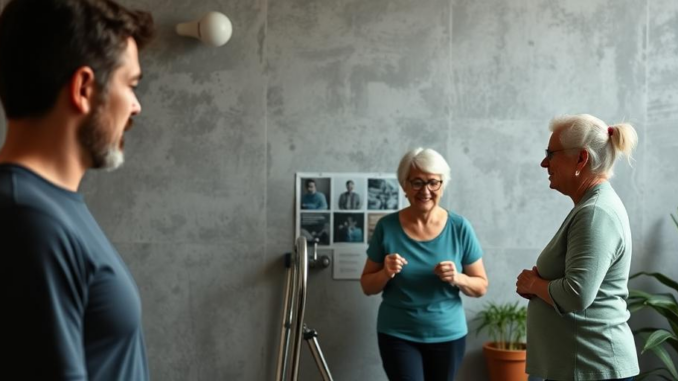
Summary
The USPSTF advises against vitamin D supplementation for fall prevention in older adults, finding no benefit and a potential increased risk of kidney stones. Exercise interventions and multifactorial approaches remain key for fall prevention. This updated guidance replaces previous recommendations, emphasizing the importance of evidence-based approaches to geriatric care.
** Main Story**
Vitamin D Supplements Don’t Prevent Falls in Older Adults, Says USPSTF
Falls represent a significant health concern for older adults, leading to injuries, hospitalizations, and reduced independence. For years, many believed vitamin D supplementation could play a role in fall prevention. However, the U.S. Preventive Services Task Force (USPSTF) recently issued a draft recommendation statement challenging this assumption.
The USPSTF now advises against vitamin D supplementation, with or without calcium, for the primary prevention of falls in community-dwelling postmenopausal women and men aged 60 and older. This recommendation stems from a comprehensive review of new evidence revealing no benefit from vitamin D supplementation across various doses in preventing falls or fractures. Furthermore, the review highlighted a potential small increased risk of kidney stones associated with vitamin D and calcium supplementation.
Implications for Geriatric Care
This updated guidance has significant implications for geriatric care. It reinforces the importance of evidence-based practices and highlights the need for healthcare professionals to re-evaluate fall prevention strategies for older adults. While vitamin D and calcium remain crucial for bone health and overall well-being, the USPSTF emphasizes that supplements don’t provide the protective effect against falls that many previously thought.
Focus on Exercise and Multifactorial Interventions
The USPSTF continues to recommend exercise interventions for community-dwelling adults aged 65 and older at increased risk of falls. These interventions involve structured exercise programs tailored to individual needs and abilities, focusing on improving balance, strength, and flexibility.
Furthermore, multifactorial interventions, encompassing a combination of strategies like education, environmental modifications, and medication review, can also prove effective for certain individuals. These interventions address multiple risk factors for falls, offering a comprehensive approach to fall prevention. Physical therapists play a critical role in assessing fall risk and designing tailored exercise programs to minimize fall risk and improve overall functional mobility.
Addressing the Growing Public Health Concern of Falls
Falls represent a growing public health concern, affecting over one in four adults aged 65 and older annually. With the increasing aging population, the incidence of falls and associated injuries continues to rise.
The updated guidance from the USPSTF underscores the need for a shift in focus towards evidence-based interventions, like exercise and multifactorial approaches. These interventions offer more effective strategies for mitigating fall risk and promoting the health and independence of older adults. The CDC recommends regular strength and balance training programs, as well as exercises like Tai Chi, which may lower the risk of falling.
Moving Forward
The USPSTF’s draft recommendation statement remains open for public comment, allowing for further discussion and input from healthcare professionals and the public. This collaborative approach ensures that the final recommendation reflects the best available evidence and addresses the practical considerations of implementing these changes in geriatric care. This updated guidance promises to refine fall prevention strategies, moving away from less effective supplement-based approaches and toward more comprehensive, evidence-based interventions that promote healthy aging and independence.


So, are we saying Grandma’s daily dose of sunshine (vitamin D) is less about graceful landings and more about… avoiding kidney stones? Should we swap the vitamin D drops for a Tai Chi class then?
That’s a great way to put it! It seems focusing on balance and coordination, like with Tai Chi, offers a more direct route to fall prevention than relying solely on Vitamin D. Perhaps Grandma could enjoy both the sunshine and a Tai Chi class!
Editor: MedTechNews.Uk
Thank you to our Sponsor Esdebe